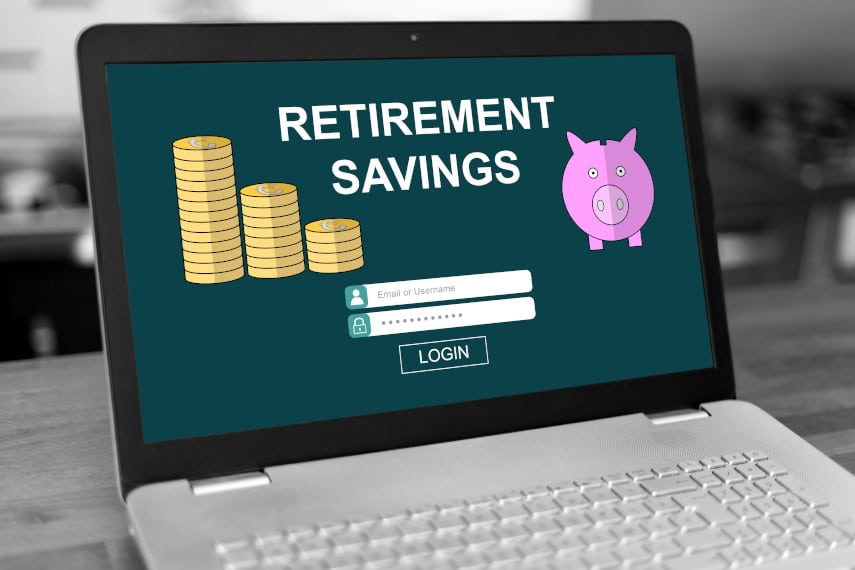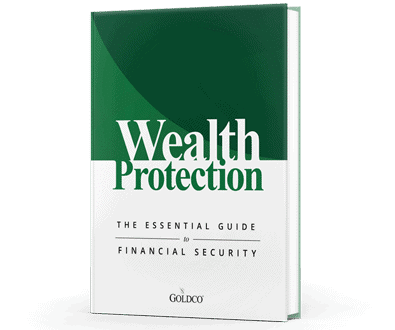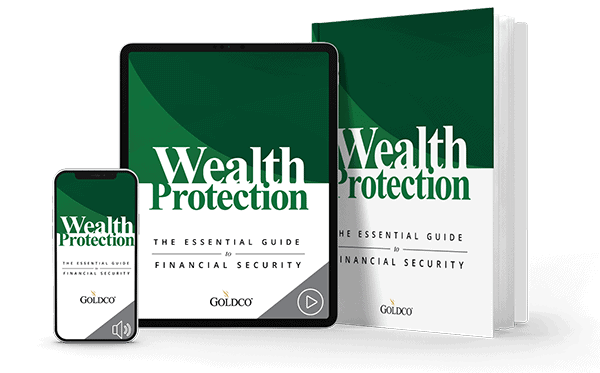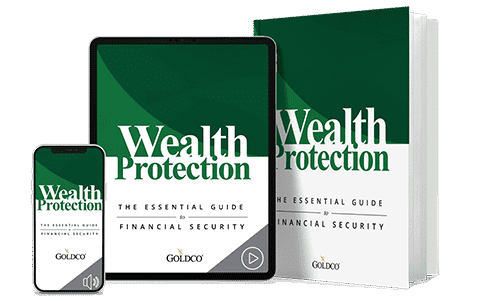3 Words You’ll Never Hear Anyone in Washington Say
There are three words you’ll never hear come out of the mouth of anyone in a position of power in Washington, DC In fact, these three words are so difficult to say that it’s likely there are more...
Federal Reserve

President Trump talked a good game about draining the Swamp, but at the end of the day he couldn’t get it done. Continual attacks from Democrats, lack of support from Republicans, and constant infighting within his administration meant that he wasn’t able to achieve even a fraction of what he set out to do. But now President Biden has the opportunity to do something Trump was unable to do. And your retirement savings could be worse off for it.
The Federal Reserve System is at a crossroads. It is currently beset by a scandal that could allow leftist activists to force through the nominations of super-dovish Governors to the Fed’s Board of Governors. Chairman Jerome Powell may not be re-nominated to another term as Chairman. And Vice Chairman Randal Quarles just recently announced his intention to resign at the end of the year, rather than serve his term that was set to expire in 2032.
Governor Richard Clarida’s term expires at the end of January. Chairman Powell’s term as Chairman ends in February, and Fed Chairmen traditionally don’t stay on for the remainder of their Board term if they aren’t renominated as Chairman.
That means that within three months President Biden could have four open positions on the Fed’s seven-member Board of Governors. President Trump had a similar opportunity, but many of his nominees, such as gold-friendly Judy Shelton, faced resistance from the Senate. With Democratic control of the Senate, you can’t expect Biden to face similar resistance.
There’s every reason to believe that Biden’s nominees will be left-leaning, even more dovish than the already dovish members of the Fed’s Board of Governors. Biden has his own infighting to contend with, with AOC and the Squad pushing on the Democratic Party from the left. So don’t be surprised to see Biden trying to throw them a bone by appointing fairly radical proponents of easy money to the Fed’s Board.
You might wonder why all of this matters. Sure, you read about the Fed quite a bit in financial media, but maybe you’re only familiar with the Fed’s actions at the 10,000-foot level. How does the Fed’s makeup affect you as a saver and investor?
The Fed’s primary responsibility is for monetary policy. And that is its primary impact on your pocketbook.
The more dollars the Fed creates out of thin air, the less value each existing dollar has. And since last year the Fed has created over $4 trillion out of thin air.
We’re seeing the results of that in the form of rising inflation, and it shows no signs of stopping anytime soon. The Fed thus far has been incredibly blase in its response to inflation. But a more dovish Fed, one dominated by Biden’s nominees, could make this Fed look tame in comparison.
Adding trillions of dollars in a matter of months may seem extreme, but what if this repeated itself every few months? That’s the risk we might entail if Biden gets his way with Fed nominees. Yes, we may have had it bad already, but it could always get worse.

While monetary policy is what the Fed is best known for, many forget that the Fed is also a major banking regulator. And Congressional Democrats are urging the Fed to use its regulatory powers to achieve what they want.
Some Democratic Senators have introduced legislation that would require the Fed as a banking regulator to forbid the banks it regulates from loaning money to projects that result in greenhouse gas emissions. But it wouldn’t necessarily take Congressional legislation to get that done.
President Biden could order the Fed to do that, as the Fed’s Board of Governors is an executive branch agency. Or he could nominate individuals to the Board who would promulgate such regulations of their own accord. Such a change would completely upend the energy industry, in which many firms are highly dependent on borrowing money from banks. And the effects on investors, on Wall Street, and on the US economy would be significant.
There is no telling how much mischief an out of control Fed could do when it comes to banking regulation. And it all comes down to the makeup of the Federal Reserve Board, something which could change completely in just a couple of months.
While the Fed prides itself on its independence from the rest of the government, historically it has worked closely in relationship with the Treasury Department. Over the past two years that relationship has reasserted itself, as the Fed has purchased trillions of dollars of debt that Treasury issued in order to fund the government’s fiscal stimulus payments.
With the possibility that Biden could remake the Fed in his image, the Fed could very well become a partner with Treasury, IRS, SEC, and other federal agencies in pushing Biden’s agenda to take wealth from American investors.
We’ve already seen Treasury Secretary Yellen push for a tax on unrealized capital gains on assets held by billionaires. We also know that the administration is pushing for increased taxation on retirement accounts that it deems to be too large. And if the Fed ends up getting compromised through new appointments, it could be just one more angle the Biden administration uses to try to get its hands on your wealth.
The key to keeping your hard-earned savings and investments out of the government’s hands is to invest in assets that can help protect you against the government’s ravaging. Increasingly that means turning away from mainstream financial assets and towards alternative assets such as precious metals.
Federal regulators are going to target the financial system, meaning mainstream brokerages, banks accounts, and other assets ripe for the picking. But gold, due to its alternative status and decentralization, is not an easy target.
The Fed can easily target banks and financial institutions. The SEC can target broker-dealers. Treasury can target other financial institutions. But who targets the individual holder of gold? That’s tough to do.
And that’s why an investment in gold or silver can be so powerful. Owning gold and silver that you can hold in your hand is a powerful defense against asset expropriation. Even when the federal government banned the private ownership of gold, it didn’t go after individual holders of gold, because it couldn’t feasibly do that.
Not only have gold and silver maintained that defense of wealth, they also have a unique ability to gain value in the face of tough economic conditions. During the stagflation of the 1970s, gold and silver averaged annualized gains of 30% over the course of the decade. And in the aftermath of the 2008 financial crisis, gold nearly tripled in value, while silver more than quintupled.
There is a concerted effort afoot to raid retirement accounts so that the government can spend more money. And gold and silver can help you defend against those efforts.
Now is the time to buy gold and silver so that your assets remain protected in the future. And Goldco’s precious metals experts can help you do that.
With over a decade of experience assisting thousands of customers just like you to protect their assets with gold and silver, Goldco’s representatives can help you through every stage of the process. Don’t let your assets remain at risk a day longer than they have to. Call Goldco today and put yourself on the path toward protecting your wealth with gold and silver.



